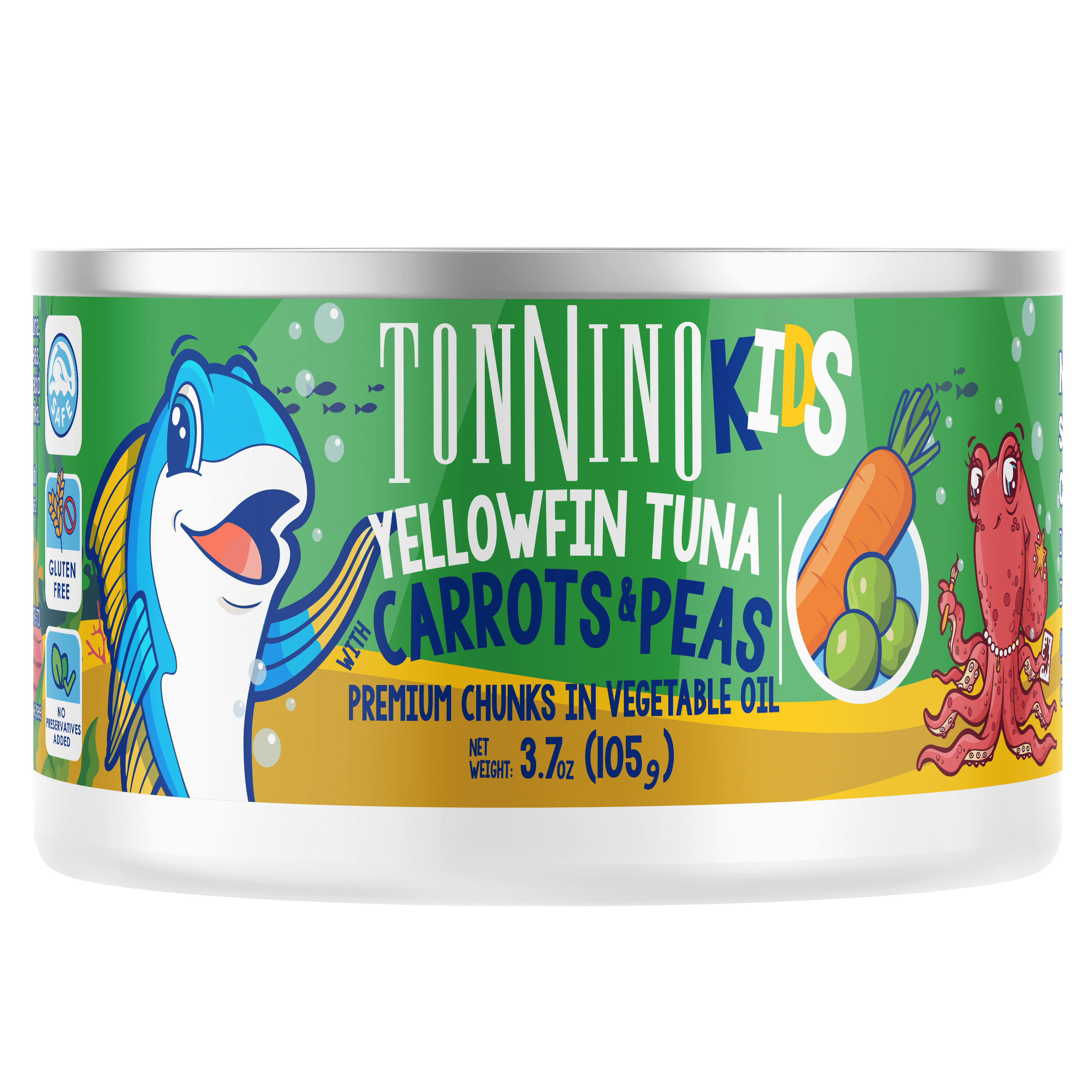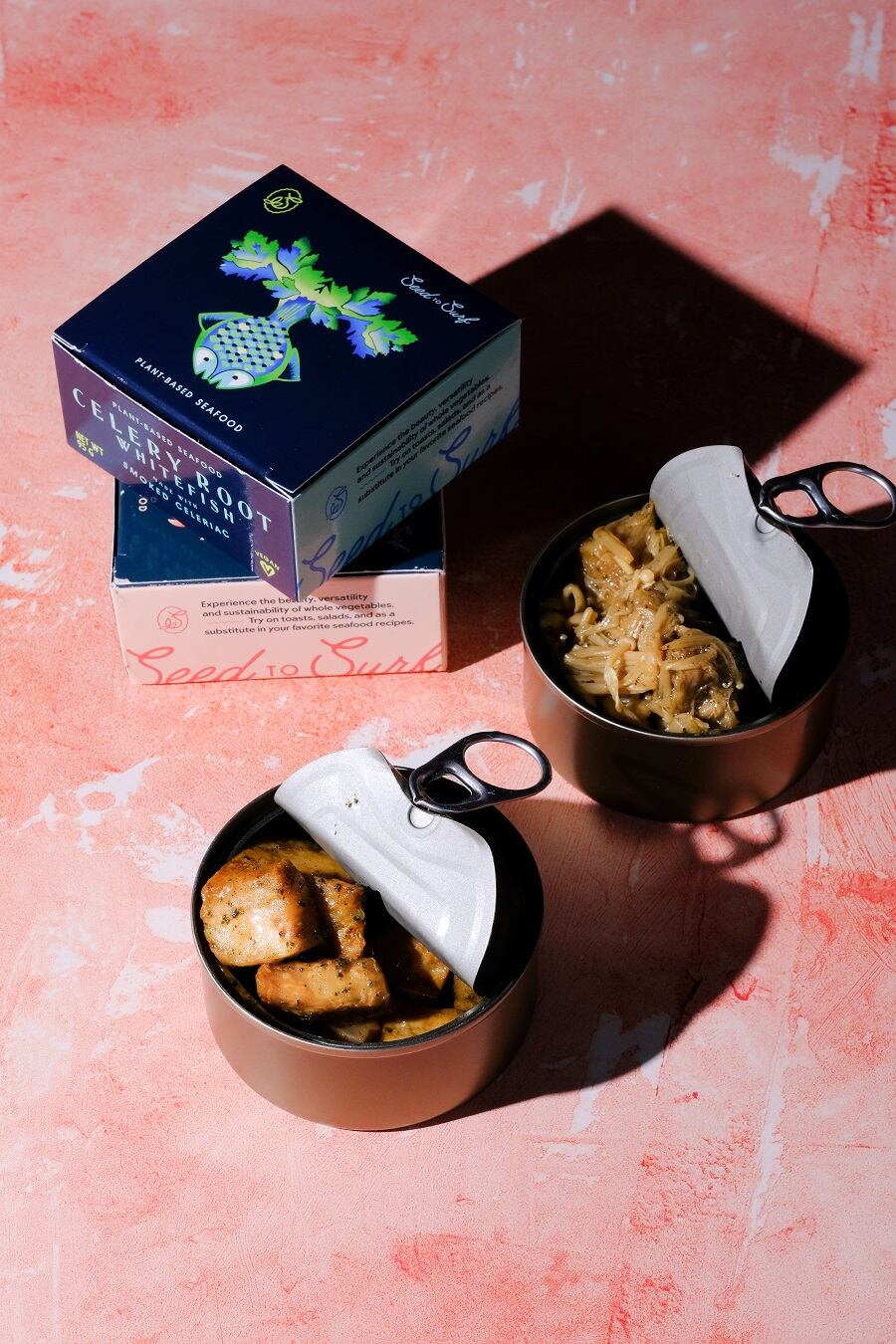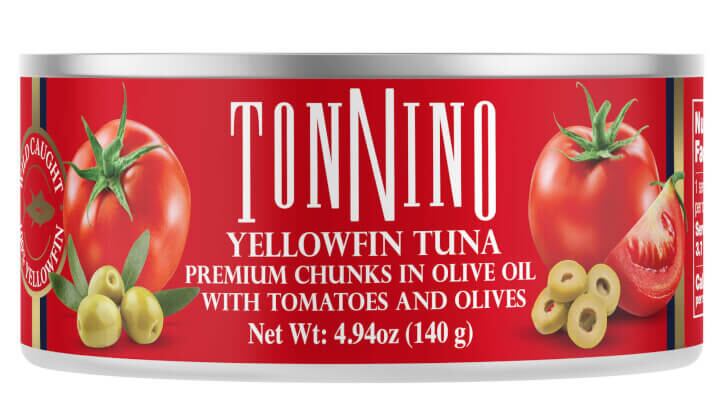Tonnino, known for its yellowfin tuna packaged in cans and jars, launched six new products in December 2023 with a focus on convenience, flavor and snacking, and suggested retail price of $3.39/can to $6.99/jar at select retailers, including Whole Foods, Walmart, Fairway and Amazon.
For children, the brand introduced its line of canned yellowfin tuna with vegetables, which include Premium Yellowfin Tuna chunks with sweet corn in water and Premium Yellowfin Tuna with carrots and peas in vegetable oil, highlighting nutrition and convenience for the children’s snacking segment.

In 2021, FDA recommended nursing mothers and young children consume seafood with lower mercury content to strengthen brain, heart and immune health and development. In 2022, the Dietary Guidelines for Americans included canned light tuna and skipjack on its “Best Choices” list; while canned tuna and albacore/white tuna were included under the “Good Choices” list.
Tonnino also launched its tuna dips – Premium Yellowfin Tuna Chunks with Chipotle Sauce and Premium Yellowfun Tuna with Spicy Bell Pepper – which the brand encourages consumers to blend with cream cheese or serve alone with chips, nachos or fresh vegetables.
To accompany other dishes, the brand introduced its premium line including Premium Yellowfin Tuna Chunks in Olive Oil with Tomatoes and Olives and Premium Yellowfin Tuna Chunks with Carrots and Peas in Vegetable Oil.
StarKist, Scout offers convenient protein
Focusing on convenient protein, StarKist launched its Tuna Creations Pouches in Lemon Pepper and Sweet & Spicy flavors, which contains 38g of protein per pouch; as well as its Whole Grain Dijon Mustard Tuna Salad pouch, containing 12g of protein. Expanding beyond tuna, the brand launched its Chicken Creations Pouches in Southwest Style and Roasted Garlic & Herb, which include 11g and 10g of protein, respectively.
The brand expands its Lunch-to-Go line with its Lemon Pepper Mix Your Own Tuna Salad Kit, which includes an assortment of crackers, reduced calorie mayonnaise, a napkin and spoon; and Deli Style Tuna Salad Kit, which also features a variety of crackers, a napkin and spoon.
Touting a “seafood on the go” approach, Scout’s MSC-certified seafood snacks focus on blending international flavors with its yellowfin tuna. The brand’s flavor portfolio includes Chili Crisp, Chile Jalapeno and Za’atar. Each snack is packaged in recyclable packaging and contains a can of wild tuna in olive oil, a spork and a crunchy topper to be mixed.
The brand also features premium tuna in Smoked Wild Albacore Tuna, Rainbow Trout With Dill, Wild White Albacore Tuna With Garden Herb Pesto and Wild White Albacore Tuna in Extra Virgin Olive Oil.
Nutritional parity still an area of opportunity for canned plant-based fish
Due in part to overfishing, climate change and metal contamination among marine life, plant-based seafood is growing as brands explore a variety of plant-based proteins and processing techniques to mimic the taste, texture, smell and nutritional quality of canned fish. From pea protein and soy to seaweed and yeast, innovations in the category continue to drive the $1.3bn global plant-based seafood market.
Vegan food producer, VGarden features its canned vegan tuna made with sunflower oil, pea protein, cellulose, salt, flavor and food color. The vegan tuna’s protein content is comparable with other tuna brands at 12g per can.

Made with wheat and soy proteins, Unmeat’s Tuna in Water contains nine grams of protein and non-GMO ingredients, while its Hot & Spicy flavor includes chili along with natural flavors at eight grams of protein.
While blurring the category lines between vegetable and plant-based seafood, Seed to Surf’s canned Celery Root Smoked Whitefish is made with smoked celery root and konbu/kelp and contains five grams of protein. The brand features familiar recipes on its website, inviting consumers to try its products and educate them on its ingredients, as reported previously by FoodNavigator-USA.


